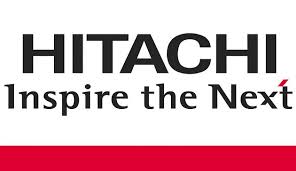SEC’s Hitachi Enforcement Action and Important Compliance Reminders
 The SEC continues to plug away at aggressive FCPA enforcement. This year, at least so far, the SEC has had a very successful year.
The SEC continues to plug away at aggressive FCPA enforcement. This year, at least so far, the SEC has had a very successful year.
The Hitachi case is a very interesting enforcement action for several major reasons. From a general perspective, the SEC’s decision to file the case in US District Court for the District of Columbia represents an important about face – instead of using administrative proceedings and a consent order, the SEC chose to file in federal court. The SEC’s decision reflects its recognition of the controversy they have created by using administrative proceedings to resolve enforcement actions.
The SEC has had some trouble getting their enforcement actions approved by federal judges, stretching back to the IBM enforcement action which was ultimately approved by Judge Leon in DC after months of clarifications and modifications to the deal. (You can imagine how much the SEC was hoping/praying that Judge Leon did not get the Hitachi case).
After reviewing the facts, Hitachi’s settlement was relatively light – $19 million. Hitachi paid approximately $10 million in bribes and secured $5.6 billion in power contracts in South Africa.
Hitachi’s conduct was fairly egregious when it comes to FCPA violations. In fact, a careful reading of the facts reveals a laundry list of major red flags and conscious avoidance of compliance in favor of Hitachi’s need for lucrative, and important, contracts with the South African electrical power agency, Eskom.
Hitachi’s bribery scheme was blatant – Hitachi “sold” approximately 25 percent of its African subsidiary to Chancellor House, a coma subsidiary of Chancellor House Trust, a front for the African National Congress, the ruling political party in South Africa. Hitachi’s ownership arrangement was a convenient front for funneling bribes, and included a side success fee arrangement on top of the ownership interest.
- Hitachi claimed that it conducted due diligence of Chancellor but was unable to produce any record of such due diligence. As pointed out in the SEC’s complaint, there were numerous red flags that were never resolved before Hitachi entered into the agreement with Chancellor.
- Chancellor, ANC, and Eskom had overlapping affiliations and direct relationships as well as connections through marriage and family members;
- Chancellor had no experience or expertise in the electric power industry and had no plans to assist in Hitachi’s operations in South Africa;
- Eskom recommended Chancellor to Hitachi as an appropriate local partner;
- Hitachi selected Chancellor because of its connections to ANC;
- Hitachi sold a 25 percent equity interest in its African subsidiary for just less than $200 thousand; and
- The proposed “success fee” provision was removed from the contract and confirmed in a side document.
 Each one of these red flags were significant on its own and required further investigation or resolution. This list provides a textbook example of red flags that should slow and even prevent engagement of a third-party, especially one which is taking an ownership interest in a company’s subsidiary.
Each one of these red flags were significant on its own and required further investigation or resolution. This list provides a textbook example of red flags that should slow and even prevent engagement of a third-party, especially one which is taking an ownership interest in a company’s subsidiary.
Hitachi’s commitment to the bribery scheme was tested further when during the pendency of one of its bids for a power project press reports in South Africa disclosed the improper arrangement. In response, the ANC, which was accused of improper financial benefits from the Eskom power tenders, eventually admitted publicly its interest in Chancellor and Hitachi’s African subsidiary.
In the face of this significant disclosure, Hitachi did nothing to review the arrangement or conduct further due diligence. Instead, Hitachi continued to pursue the projects and eventually was selected for both lucrative projects.















